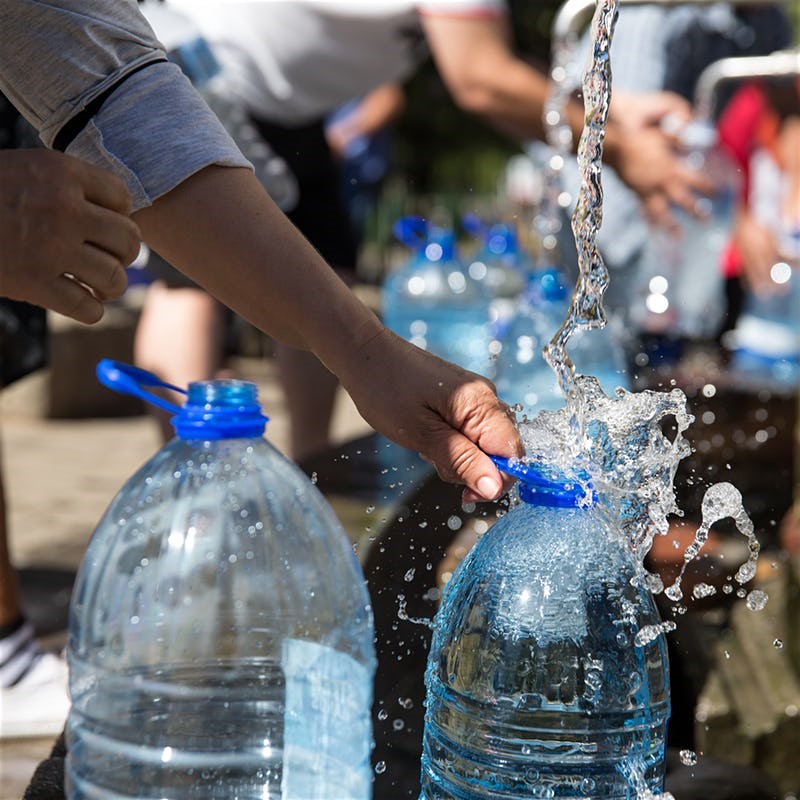Before the taps run dry
IW:LEARN | 26 February 2018
Cities around the world are making headline news for a deeply concerning reason. Ouagadougou, La Paz, Freetown and more recently Cape Town are suffering from severe water shortages. Urbanisation, population growth, industrialization and increased consumption have caused the global use of freshwater to double between 1964 and 2014. These factors are exacerbated by climatic events, the effects of which are becoming increasingly problematic.
Many countries lack the tools needed to assess the current situation, plan for the future, increase planning efficiency and priorities responses. The GEF / UN Environment Floods and Droughts Management Tools (FDMT) Project has been developing a package of web-based tools to address these gaps, working closely with 3 pilot basins (Volta, Lake Victoria and Chao Phraya) to test the methodology and technical applications.
To help implement these novel tools in other GEF IW projects and river basins around the world, GEF IW:LEARN in collaboration with the GEF/UN-Environment FDMT project, UN Environment - Danish Hydraulic Institute (UNEP-DHI), International Water Association, United Nations Economic Commission for Europe, and the World Meteorological Organization brought together 13 basin level representatives for a one day twinning workshop in Geneva, Switzerland (13 December 2017). The workshop was generously hosted by the WMO at their headquarters.
The participants were introduced to the technical applications developed under the GEF/UN-Environment FDMT project, and more importantly, how the FDMT methodology and associated applications can be implemented in GEF IW projects to support the TDA and/or SAP processes. Topics such as identification of environmental impacts and their underlying causes, selection of relevant indicators, access to near real-time climate data for planning, drought assessment, basin planning and dissemination of relevant reports or bulletins were addressed.
The participants provided valuable feedback on the technical applications of the FDMT tools which will help ensure that the outputs are meaningful and relevant for transboundary basin planning. According to the UNEP-DHI and the International Water Association team responsible for the development of the tools (Katharine Cross, Raul Glotzbach, and Oluf Jessen) one of their challenges has been how the methodology and associated technical applications can support the TDA/SAP process. According to Oluf Jessen, “This training was an opportunity to address this challenge and potentially identify basins that could make use of the projects outputs”.
For the participants, the hands on experience was practically valuable. When asked about the twinning exchange, Rohallati Ndara (Lake Chad Basin Commission) felt that “The training was beneficial and there is a clear need to link the availability of water resources, climate change and health”. Maria Apostolova (GEF Amazon project) shared her lessons learned from the exchange, expressing that “The direct access to the application and the instruction received on its functions and operation is beneficial for the GEF Amazon Project, as it provides a consolidated tool, which could be used in public participation exercises (causal chain analysis and definition of core indicators) and basin planning at the regional level”.
When asked what new issues or questions remained unanswered from the exchange, the participants felt that there was a need for more focused training with relevance to river basin planning. Responding to this request, GEF IW:LEARN will prepare a follow up exchange with the same group to build further on the content of the previous workshop and to receive training on the Basin Planning Tool being released by the GEF / UN Environment FDMT project in May 2018.

To read the original post, visit: https://news.iwlearn.net/before-the-taps-run-dry
